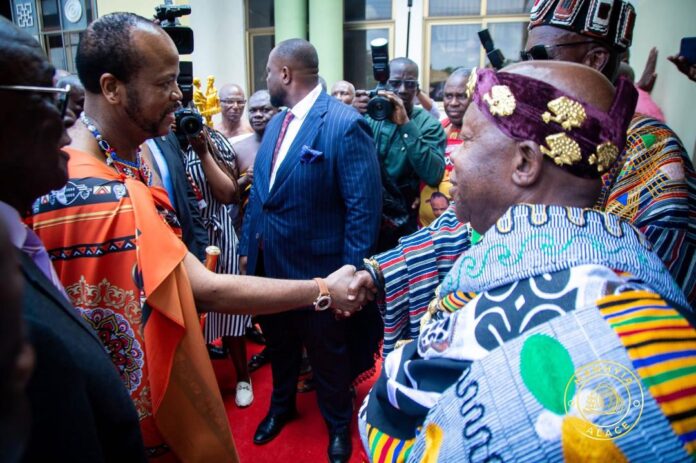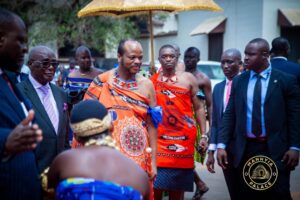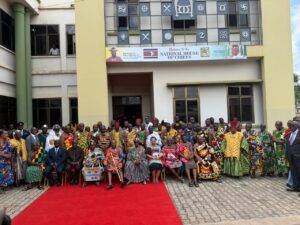The King of Eswatini, King Mswati III, has admonished political leaders to leverage on the peaceful co-existence with the chieftaincy institution to develop the country.
To him, the lifetime tenure of the chiefs should aid continuity in development by governments whose power is transient.
“Traditional leadership is a birthright, you are for every day, it means that the central governments can rely on traditional leadership, especially, on how to continue to develop the country,” he said.
Delivering a speech at the National House of Chiefs in Kumasi, King Mswati indicated traditional leaders, due to their proximity to the public, have firsthand information on national challenges, hence the need for strong partnership with the central government in dealing with them.
“The traditional authorities are the ones who can give good advice to the executive while they carry out development of the country,” he said.
He also admonished the chieftaincy institution to innovate and adapt to reclaim their role in development.
The King, who doubles as Eswatini Head of State, is on a visit to the Asantehene, Otumfuo Osei Tutu II. In 2015, the Asantehene visited the Southern African country, necessitating a return visit.
Though there is a cordial relationship between Eswatini and Ghana, the King acknowledged the need to strengthen ties for mutual benefit.
“Our aspirations should extend beyond cultural exchange since we have immense potential in tourism, trade and education. We envision your educators and entrepreneurs working alongside our innovators to preserve our knowledge and history,” King Mswati added.
Already, Ghana and the Eswatini have signed a memorandum of understanding (MoU) to establish a Joint Commission for Cooperation. The move aims to strengthen the bilateral relations between the two nations.
Meanwhile, President of the National House of Chiefs, Ogyeahohuo Yaw Gyebi II, has underscored the need for exchange of ideas in strengthening the Chieftaincy institution.
“This visit presents the opportunity for us to know at first hand the unique history, culture and traditional norms of Eswatini,” he said.
He further indicated that “from your side, you offer the unique insight into how traditional authority can co-exist with local and national governments for economic and social development of our people.”
The President of the National House of Chiefs further indicated, “from your side, you offer the unique insight into how traditional authority can co-exist with local and national governments for economic and social development of our people.”
The Minister for Chieftaincy and Religious Affairs, Ahmed Ibrahim emphasized the importance of the Chieftaincy institution to development.






